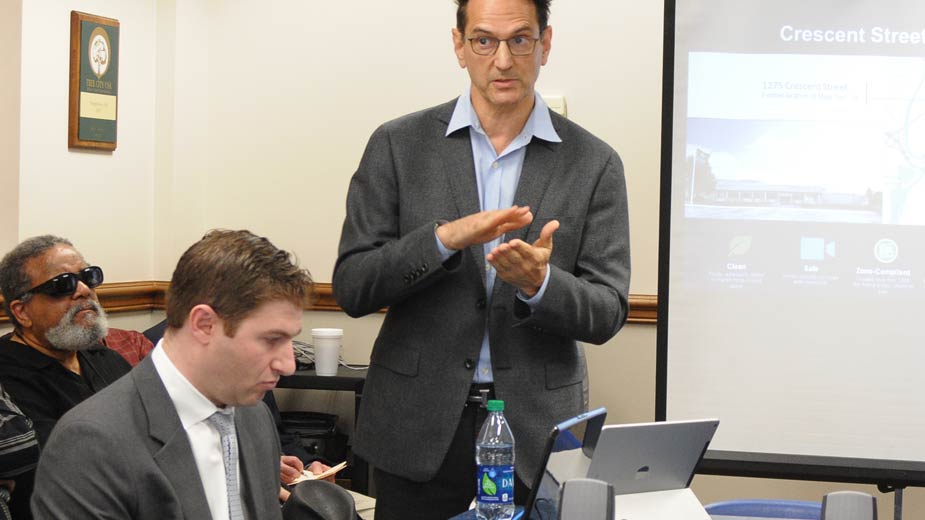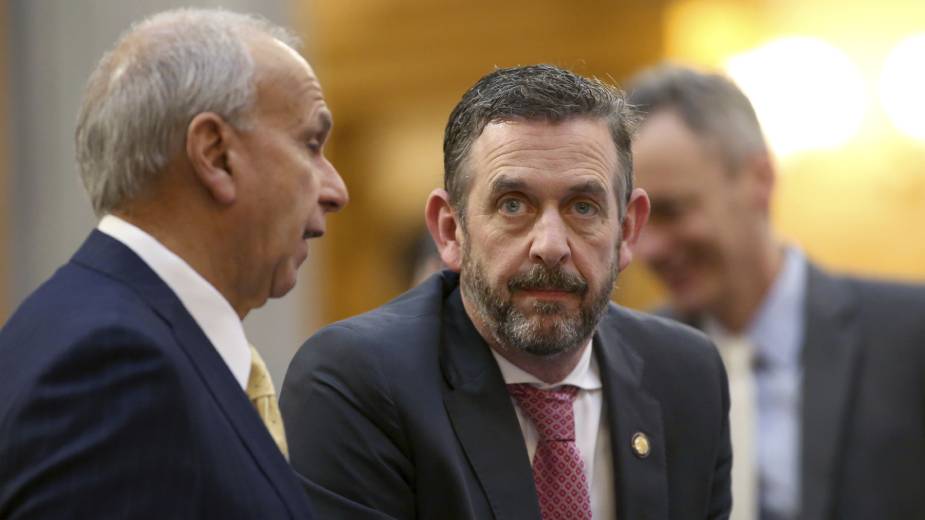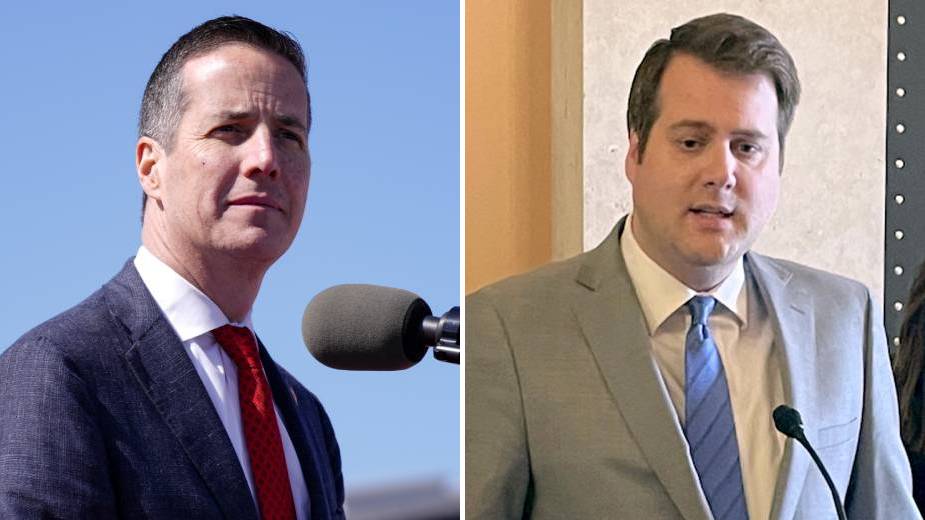Council Hears from 5 Medical Marijuana Groups
YOUNGSTOWN, Ohio – Five groups competing for licenses to grow medical marijuana in Ohio say they have sites selected across the city that would accommodate cultivation centers, and emphasized the need for community support to show officials in Columbus that they mean business.
“These are folks who are serious about what they want to do,” said Mayor John McNally, shortly after the groups concluded their presentations before City Council Monday evening. “I think people are generally supportive.”
The groups made their pitch during a three-hour meeting of City Council’s committee of the whole during which they fielded questions from both councilmen and city residents in a packed caucus room.
“This was a good informational session for council,” McNally said. “I think from here it’s up to the developers as to what they want to do and await some decisions from the state.”
Ohio approved the production, processing and use of medical marijuana in 2016, but has allowed just 24 licenses for cultivation sites across the state. Twelve of these certifications are for Tier I licenses, or growing sites that are initially 25,000 square feet that could be expanded to 75,000 square-feet. The other 12 are Tier II licenses that are for sites that start at 3,000 square feet with potential expansion to 6,000 square feet.
While most were receptive to the presentations, others in the caucus room felt that the very thought of introducing the idea of legalized marijuana into the city sets a dangerous precedent.
“One word — insanity” declared the Rev. Gary Frost of the Mission America Coalition. “There’s no question that there’s no need for more marijuana anywhere.”
Frost said he doesn’t oppose the concept of medical marijuana, but is convinced that these presentations and the way Ohio is structuring the process are merely the first step to legalizing marijuana for recreational use.
“This is leaning toward recreational marijuana sales, just like beer and other alcoholic beverages,” Frost said, emphasizing that drug use has destroyed families and children in the community. “It really angers me when I see people making justifications for insanity.”
He said there is a growing movement among faith-based groups to oppose these projects. “We understand that we can’t change the laws Ohio has enacted,” he said, “but we can affect what’s done in our community.”
Of those who made presentations Monday, three have local investors — Fast Track Group, Silver Rapids LLC, and Riviera Creek LLC. The other two – Mahoning Valley Agriculture and Ohio Grown Medicine – are composed of investors from the Cleveland and Pittsburgh regions.
Local businessman Herb Washington and his son Terrell are the major backers behind Fast Track Group, who want to invest a total of $6 million to start a medical marijuana site in the city. The group is considering at least three sites.
Washington said he doesn’t need to raise additional capital and has the funding necessary to carry the project forward. “We don’t need to go out and find other partners,” he said. “We can finance this internally.”
What sets Fast Track’s proposal apart from others is that it could cultivate both medicinal marijuana and herbs such as basil. The site would use a vertical growing system that saves space, and should demand for medical marijuana take off, workers could easily make the transition from growing herbs to cannabis.
“If we were to win this license from the state, we would immediately start an agriculture grow – basil, tomatoes – and start hiring already,” Washington said. “It would bring jobs immediately and also start to train individuals who could switch to cultivation.”
Fast Track has partnered with Mick and Joan Stadler of Rochester, N.Y., who work closely with Columbia Care, a medical marijuana investor group that has secured medical cannabis licenses in New York. “We have experience growing from both sides of the spectrum,” the Stadlers said, “from medicinal crops to medical marijuana.”
Wages for unskilled workers would start between $30,000 and $35,000 a year, he said. About 25 of these jobs would be created the first year as well as 11 executive positions.
“We’re being very conservative,” Washington noted. “We don’t know the demand yet, so these numbers could be a lot higher.”
Les Hollis, a consultant for Ohio Grown Medicine, said he has experience in the medical marijuana business in Illinois and Pennsylvania. He is the CEO of the sole African-American medical marijuana distributor and grower in Illinois.
The group plans to spend between $8 million and $10 million to construct a new building that would house an indoor farm at 1505 Logan Ave. – former site of the Youngstown Building Materials complex.
“We’re ready,” Hollis said. The company is applying for a Tier I license. At first the project would employ between 50 and 60 people, he said. The plan is to build a warehouse capable of cultivating 25,000 square feet and eventually expand it to 75,000.
Although Hollis is from the Chicago area, all of the investors in this venture are from Ohio and are African-American.
Terrell Dillard, who lives in the Cleveland area, said the group chose Youngstown because it wanted to draw its employees from a diverse, inner city population. “This is a real Ohio business,” Dillard told council.
Moreover, Hollis said, community support is vital for Youngstown to land a grow site. The group has other sites in mind in other Ohio communities. “We need a consensus from the community,” Hollis said. “We’re not going to win unless your group wants us. Without this, it cannot be successful.”
Other presenters also say a unified voice from the Mahoning Valley is necessary to catch the attention of Columbus.
Brian Kessler, along with his nephew Daniel Kessler, said that their group, Riviera Creek LLC, has the experience to cultivate and bring medical marijuana safely to market.
His family has had a presence and done business in the Mahoning Valley for more than 80 years, and Kessler owns a building on Crescent Street in the Riverbend District that would serve as the site for the indoor farm. “We have one of the most environmentally advanced systems in the industry,” he said.
Kessler said his group seeks a Tier I license and projects upward of 300 jobs by 2022 once the business is fully built out.
And, Kessler said, he has commitments from suppliers who have agreed to relocate to Youngstown should his group be successful in securing a license. One auxiliary business, he reported, is a company that manufactures equipment for the industry.
Mahoning Valley Agriculture, who met last week with The Business Journal to discuss its plans, is largely financed from Pittsburgh interests who see opportunity in the Youngstown area.
Sanjay Bawan, a consultant from Los Angeles for the group, said the project calls for an upfront investment of $10 million — $6 million to acquire and retrofit a building and another $4 million in operating capital to start. At a full build-out of 75,000 square feet, the project could create between 250 and 300 jobs.
Another group, this one with an investor mix entirely from Mahoning County, plans to apply for a Tier II license to start a grow site just off Poland Avenue.
“We’ll be investing between $700,000 and $750,000,” said Victor Masters, a principal at Silver Rapids LLC. He said his expertise as a systems engineer allows for a grow site with technologically advanced applications. Most of the 25 jobs created would be part-time, he added.
Applications for Tier I licenses are due by June 30, Tier II applications by June 15. A decision by the state should be made sometime in September.
 Pictured: Victor Masters, right, and his father at last night’s council session.
Pictured: Victor Masters, right, and his father at last night’s council session.
Pictured at top: Brian Kessler presents his company’s plans with his nephew, Daniel.
May 11, 2017: Kesslers, 2 Other local Groups Seek Marijuana Sites
May 9, 2017: With $10M in Backing, Group Vies for Medical Marijuana Site
Copyright 2024 The Business Journal, Youngstown, Ohio.



